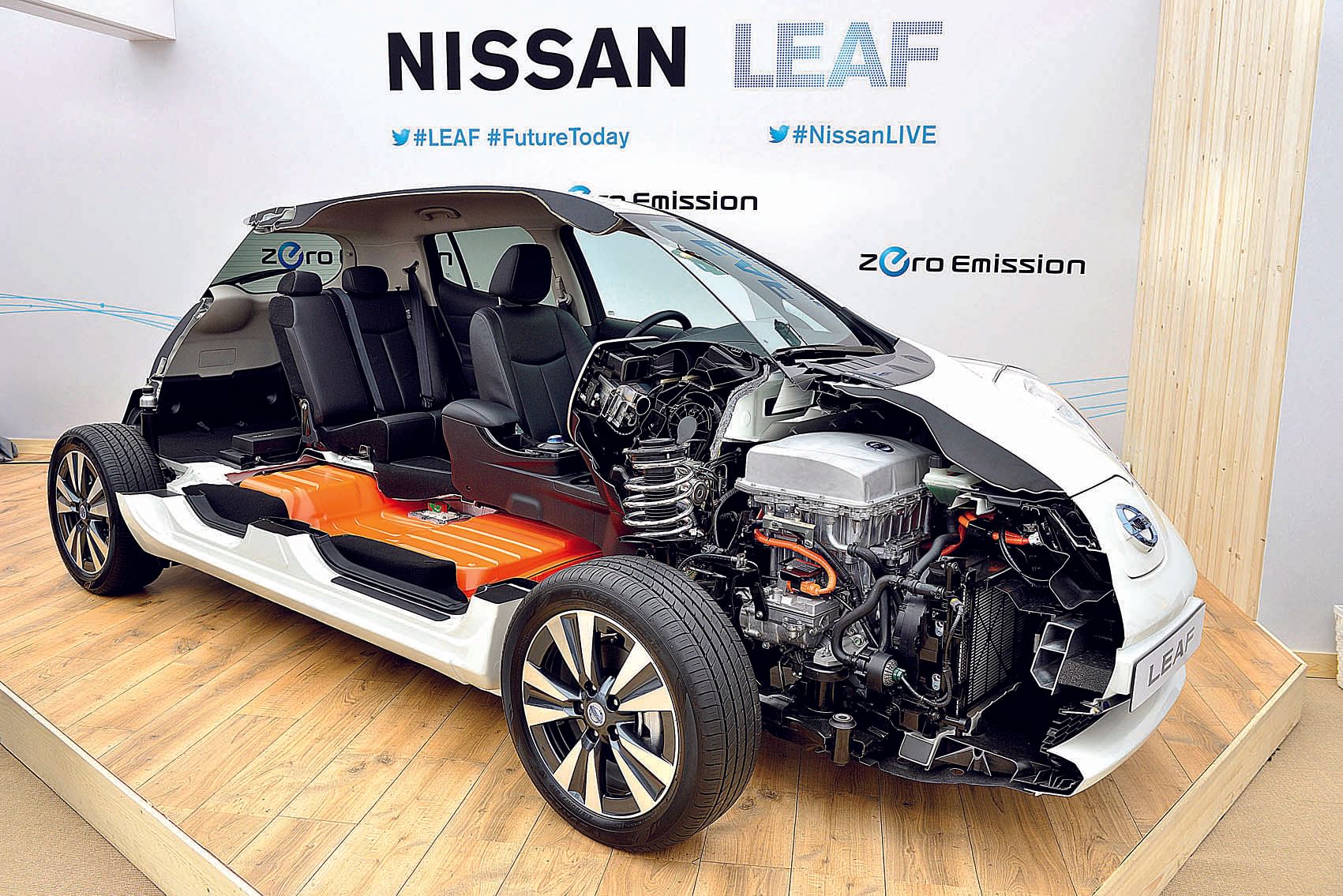Nissan tests Indian waters for all-electric Leaf
Japanese automobile major Nissan has a target of being the first global OEM to launch a full electric vehicle in India.
Japanese automobile major Nissan has a target of being the first global OEM to launch a full electric vehicle in India.
The government of India's FAME (or Faster Adoption and Manufacturing of Electric Vehicles) programme that kicks in this month has spurred the company to step up its activities aimed at bringing the zero emission Leaf to India.
“It’s progressing much better than before. The government’s positive signals are allowing us to run the clinic now. That’s the only reason why we have brought it to show you here,” Sundararajan Krishnan, assistant chief vehicle engineer, Renault Nissan Technology & Business Centre India (RNTBCI) told Autocar Professional at an event in New Delhi last month where Nissan showcased the Leaf, among other Nissan vehicles, to the media and potential customers for test drives and feedback.
A couple of driving sessions with the Leaf has helped understand the car well. Driving enthusiasts are not quite excited about electric vehicles (EV) as they are seen as more practical but less exciting than conventional cars.
The Leaf begs to differ. It has a sporty side which is impressive. The 80kW motor’s 240 Nm of peak torque right from the start makes you understand why the response to the throttle pedal feels exciting. Making this EV’s tyres screech is not difficult at all. No wonder that Nissan chose to have racing driver Armaan Ebrahim in charge of the Leaf at the event.

Globally, the Leaf is positioned as an urban hatchback. The car has a host of safety features that include ABS, EBD, six airbags, vehicle dynamic control and traction control system. The car has a driving range of 135km with a fully charged battery. Nissan plans to increase the range to 400km.
The Indian tech connect
Nissan’s extended research centre at IIT Madras is working on improving battery performance. With chemical and materials engineering seen as areas of competence at IIT Madras, some of the key research conducted by the engineering team at the premier institute may well be used for hybrid and electric vehicle development by Nissan.
Globally, Nissan has sold over 160,000 Leafs which makes it the world’s best-selling EV. It is more of a halo model for Nissan rather than a money spinner. The same would hold true for India if Nissan decides to launch it here.
Guillaume Sicard, president of Nissan’s India operations, says that selling the Leaf will involve many factors. “We need to partner with the government. In addition, we must ensure that the government and local municipal bodies are supportive in terms of charging infrastructure, taxes,” he explains.
The first tranche of funding of Rs 75 crore under FAME may be ‘very little’ to support the EV industry but Sicard is of the opinion that it is a ‘good start’.
RELATED ARTICLES
Cosmo First diversifies into paint protection film and ceramic coatings
The Aurangabad, Maharashtra-based packaging materials supplier is leveraging its competencies in plastic films and speci...
JSW MG Motor India confident of selling 1,000 M9 electric MPVs in first year
The 5.2-metre-long, seven-seater luxury electric MPV, which will be locally assembled at the Halol plant in Gujarat, wil...
Modern Automotives targets 25% CAGR in forged components by FY2031, diversifies into e-3Ws
The Tier-1 component supplier of forged components such as connecting rods, crankshafts, tie-rods, and fork bridges to l...






 07 Apr 2015
07 Apr 2015
 10879 Views
10879 Views





 Autocar Professional Bureau
Autocar Professional Bureau




